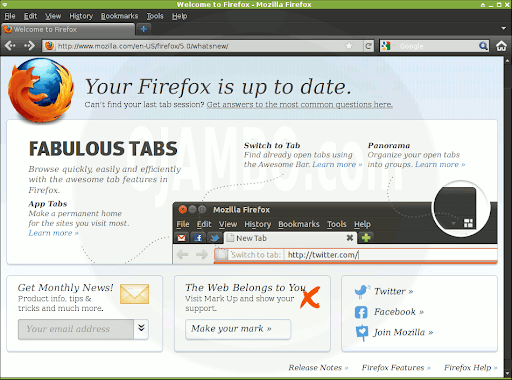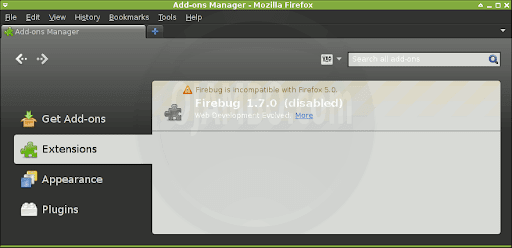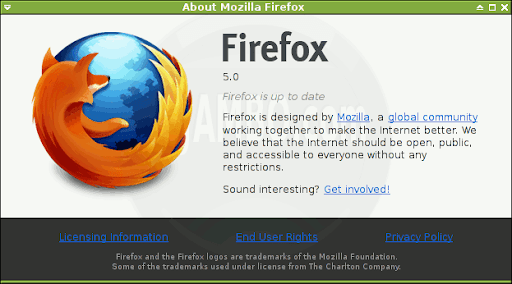Issues with Mozilla’s frequent Firefox releases
Mozilla claims that more frequent Firefox releases can occur without disrupting “longer term work”. The overview can be found on a wiki explaining the Mozilla Firefox Rapid Release.
The biggest issue with the rapid releases is the end-of-life (EOL) of older releases.
Mozilla updated their end-of-life policies starting with Firefox 5.0 and up. However older releases such as 4.0, 3.6 and 3.5 are still very popular.
Why not simply update

Some people use embedded devices that do not allow updating the browser. Older computers that do not have the resources required for current browsers. When everything is stable and working perfectly, some people do not see the need to update browsers.
Issues with updates

Firefox is well-known for its extensions which are add-ons that increase the online user experience. Most add-ons are provided by third parties who will now need to keep up with the rapid release cycle.
Alienating users

Enterprise users and others who value stable long-term releases will have to look elsewhere. As of July 11, 2011, the stable version of Debian uses the 3.5 series of firefox renamed iceweasel. It seems users might need to fork firefox or keep a version that they update themselves like Debian.
Competitors reactions
Microsoft is already courting enterprise users by supporting browsers for long periods. Microsoft still provides support for Internet Explorer 6.0 until 2011 as shown on Life Cycle. Mozilla is helping make the web user experience bad for everyone.
Web programmers will be forced to support browsers that are not standards-compliant due to popularity. Mozilla should be thanked for trying to bring new standard to web users faster.
Possible Solutions
Mozilla is trying to alleviate the pain of the rapid releases by making extensions javascript-based. Javascript is a standard that will enable plugins to work on future browsers will minimal disruptions.
Conclusion:
Mozilla’s rapid release schedule for firefox will affect some users more than others. Users who cannot update due to hardware or resource restrictions will hate the rapid releases. Users who use extensions will have to wait for third-party providers’s updates.
- Recommendations:
- Before updating, make sure extensions will be compatible.
- Do not rely on one browser, keep a spare for emergencies.
- Do not fear change, embrace it by updating if you can.
- Do not hold back standards by embracing non-complaint browsers.